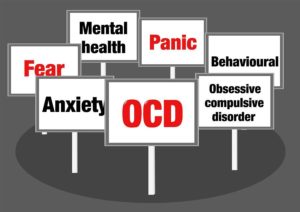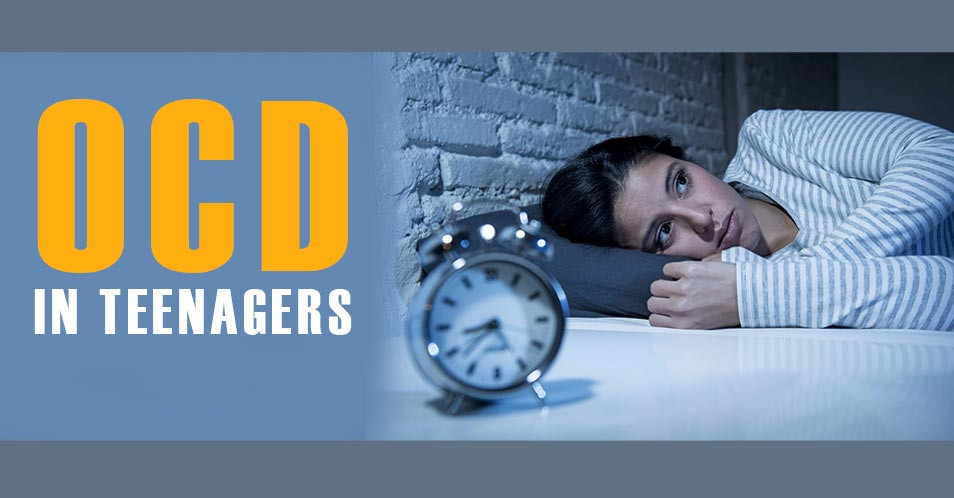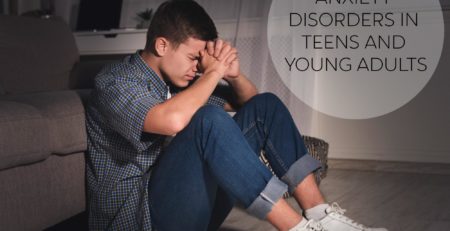Obsessive-Compulsive Disorder: The Causes and Treatments
Teen Obsessive-compulsive disorder (OCD) features a pattern of unwanted thoughts and fears (obsessions) that lead you to do repetitive behaviors (compulsions). These obsessions and compulsions interfere with daily activities and cause significant distress.
You may try to ignore or stop your obsessions, but that only increases your distress and anxiety. Ultimately, you feel driven to perform compulsive acts to try to ease your stress. Despite efforts to ignore or get rid of bothersome thoughts or urges, they keep coming back. This leads to more ritualistic behavior — the vicious cycle of OCD.
OCD often centers around certain themes — for example, an excessive fear of getting contaminated by germs. To ease your contamination fears, you may compulsively wash your hands until they’re sore and chapped.
If you have OCD, you may be ashamed and embarrassed about the condition, but treatment can be effective.
Living with OCD can be tough. You may feel like you’re constantly battling against your own thoughts and fears. And when those thoughts are about things that other people might find strange or embarrassing, it can be even harder to cope. But don’t worry — there is help available. In this article, we’ll talk about what OCD is and how to manage it effectively. We’ll also discuss some of the common themes that OCD often centers around. If you have any questions, please don’t hesitate to reach out to a mental health professional for help!
OCD can affect anyone, regardless of age or gender. For teens, it can be especially challenging, as you may feel embarrassed or ashamed about your thoughts and behaviors. But with the help of a psychiatrist or mental health professional, it is possible to manage OCD effectively. Some of the common themes that OCD often centers around include contamination fears, intrusive thoughts, and compulsive behaviors.
If you are struggling with OCD, it’s important to remember that you aren’t alone. There are many effective strategies and treatments available to help you cope with your condition and live a happy and healthy life. If you need additional support or guidance, don’t hesitate to reach out to us at 816.819.5166 or Click to Schedule Today!
Obsessive-compulsive disorder (OCD) is a mental disorder in which people have unwanted and repeated thoughts, feelings, images, or sensations (obsessions) that make them feel driven to do something over and over again (compulsions). Often the person carries out the behaviors to get rid of the obsessive thoughts, but this only provides temporary relief. Not performing the obsessive rituals can cause great anxiety. A person with OCD can have either obsessions or compulsions, or both. 
What Causes OCD?
The cause of OCD is unknown, but research suggests that it involves changes in the brain and body’s natural chemistry and functioning. OCD may run in families, but no specific genetic link has been identified. It is also common for OCD to develop alongside other mental disorders such as anxiety disorders, depression, and eating disorders.
Certain traumatic or stressful life events may trigger symptoms of OCD. For example, the death of a loved one, a divorce, or a move to a new city can all lead to increased levels of anxiety that may trigger OCD symptoms.
Who Is Affected by OCD?
An estimated 2.2 million American adults suffer from OCD. The disorder usually begins in adolescence or young adulthood, but children as young as 5 years old can also be affected. Men and women are affected equally by OCD.
What Are the Symptoms of OCD?
People with OCD often have persistent and unwanted thoughts or fears that lead them to engage in repetitive behaviors called compulsions. These obsessions and compulsions interfere with daily activities and cause significant distress. A person with OCD may try to ignore or stop their obsessions, but that only increases their distress and anxiety. Ultimately, they feel driven to perform compulsive acts to try to ease their stress. Despite efforts to ignore or get rid of bothersome thoughts or urges, they keep coming back. This leads to more ritualistic behavior — the vicious cycle of OCD.
OCD often centers around certain themes — for example, an excessive fear of getting contaminated by germs. To ease your contamination fears, you may compulsively wash your hands until they’re sore and chapped. Or you may shower for hours each day or repeatedly clean your house. Some people with OCD obsess about accidents or becoming ill. Others become preoccupied with orderliness, symmetry, or religion. Still others develop repetitive sexual or violent thoughts. For some people with OCD, just thinking about a feared object or situation brings on symptoms of anxiety. They might avoid places that could trigger their obsessions, such as public restrooms if they’re afraid of germs. People who hoard commonly collect items that hold no value to others because they fear throwing them away will have dire consequences – even though they’re fully aware that their fears are unfounded. The causes and effects of OCD can vary greatly from person to person. But most people with this condition experience several types of obsessions and compulsions throughout their lifetime
If you think you might have OCD, talk to your doctor or a mental health professional. Treatment generally includes medication (usually antidepressants) and cognitive behavioral therapy (CBT), which is a type of psychotherapy that helps people change their thinking patterns and behaviors associated with OCD. With treatment, most people with OCD can expectations and live contentedly. Left untreated however, OCD can dramatically interfere with job performance, academic achievement, family relationships, social activities, and enjoyment of life. If you think a friend or family member might have OCD, talk to him or her about it in a caring way—without judgment—and offer support and encouragement during treatment.











